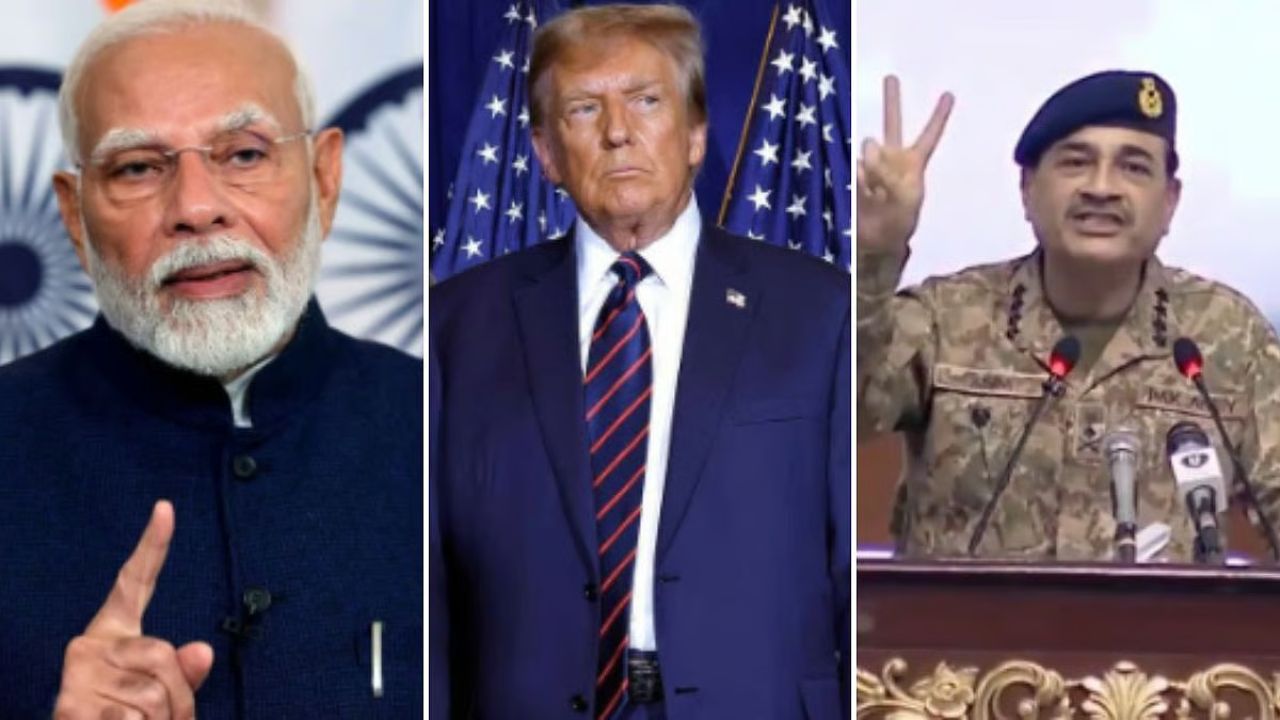 English
English

US-India-Pakistan power play: Trump courts Pakistan for Iran, India counters with military strikes, while China looms. Geopolitics reshapes South Asia’s future.

Who holds the winning card in South Asia: India, China or Pakistan? (Image Source: Internet)
New Delhi: This analysis highlights the dynamics of the triangular relationship of the US, India, and Pakistan in South Asia, where strategic requirements, historical legacies, and ideological confrontations come into play simultaneously, reports Dynamite News correspondent.
In geopolitics it is always being said that there are no permanent enemies and no permanent friends, only permanent interests. India might have stuck to the non-aligned movement since its independence, but Pakistan has been a scapegoat for Western countries in order to satisfy their need and disintegrate India.
US Policy Shift: Re-Embracing Pakistan
Donald Trump’s White House lunch with Pakistani Army Chief General Asim Munir and claims on the India-Pakistan ceasefire (which India has denied) reflect the shortcut diplomacy of the US.
The Trump administration’s transaction-based approach (focus on deals rather than doctrine) has given Pakistan a $397 million F-16 deal, termed it“counter-terrorism, described Pakistan as a phenomenal partner and praised its role in the Iran crisis and harmed India-US CT cooperation and strategic partnership against China.
Trump knows that before countering China, he must first confront Iran to bolster his grandiose global image. For this, he needs Pakistan—a country that shares a border with Iran. While Pakistan may appear to be cozying up to China, in reality, it remains a pawn in America’s strategic game.
India's concern
The US now considers Pakistan a strategic partner, not a sponsor of terrorism. This is a threat to the principle-based partnership it built during Trump's first term.
India's new military strategy: Beyond strategic restraint
In response to the Pahalgam terrorist attack, India broke the old policy of strategic restraint by carrying out Operation Sindoor. The Modi government made it clear by announcing the "new normal" that India will isolate Pakistan globally along with military retaliation.
But the strong China-Pakistan duo and the threat of a two-front war still challenge India and pose a threat to its sovereignty. Pakistan has further strengthened the dominance of the military by making Asim Munir a "field marshal."
To counter India’s rising global profile, Pakistan is still keeping the Kashmir issue alive and proving itself “indispensable” through trade, rare minerals, and economic partnership with the US.
US dilemma: Geopolitical importance of India vs. Pakistan in the Indo-Pacific
Pakistan’s geographical advantage (position between Afghanistan, Iran, and China) makes it relevant in US policy. Therefore, US priorities are now focused on trade and tariffs, blurring India’s Indo-Pacific role. But if the US hyphenates India-Pakistan, India’s global ambitions will suffer a setback.